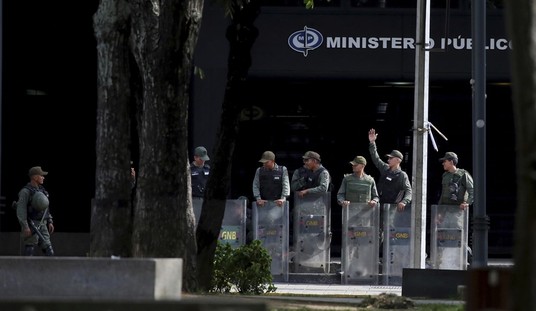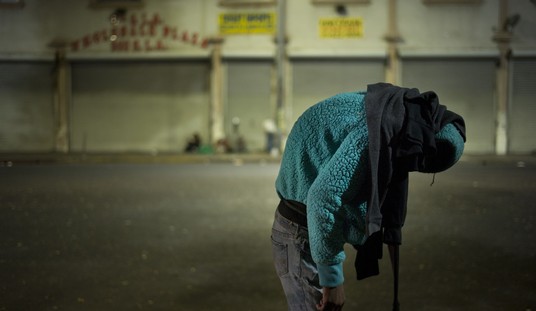The Illinois state legislature adjourned on Friday night without resolving the public employee union pension crisis that threatens to overwhelm the state’s finances and drive it into insolvency. The extraordinary difficulty in coming to grips with this massive problem in Illinois gives us a glimpse into the near future where dozens of states will have to address similar problems with the overly-generous pensions granted state employee unions over the last couple of decades.
The Joint Economic Committee issued a report last fall that showed, state by state, the unfunded liabilities in public pensions. The total came to $2.8 trillion with Illinois leading the way with 71% of its total liabilities due to pension fund shortfalls (see map on page 4).
The shortfall in the Illinois pension system tops $100 billion. For a little perspective, the legislature last night passed a state budget for around $35 billion. You needn’t be a math whiz to figure out the danger to Illinois taxpayers if the state can’t get their finances in order.
To make matters worse for the Land of Lincoln, the SEC cited the state for lying about its contributions to the plan.
The SEC found that the State of Illinois failed to disclose to investors “material information” regarding the continuous underfunding of their pension systems and the resulting risks to the State’s financial solvency. The scheme underfunded the State’s pension obligations in the early years and back-loaded the majority of pension contributions far out into the future. The Funding Plan also allowed the State to take “Pension Holidays” with no funding during 2006 and 2007. The State of Illinois hid from investors the effect of these funding changes on their ability to pay pension obligations.
In anticipation of the institution of potential civil and criminal charges, the State of Illinois submitted an Offer of Settlement that admitted wrongdoing and consented to an SEC “Cease-and-Desist” Order for violating the Securities Act of 1933.
In what is a direct warning to other state and local public pension plans; SEC Enforcement Director George S. Canellos stated: “Municipal investors are no less entitled to truthful risk disclosures than other investors.” Elaine Greenberg, Chief of SEC Municipal Securities and Public Pensions Unit, added, “Regardless of the funding methodology they choose, municipal issuers must provide accurate and complete pension disclosures including the effects of material changes to their pension plans. Public pension disclosure by municipal issuers continues to be a top priority of the unit.”
Republicans in Congress fear that many states will soon begin asking for pension fund bailouts from Washington. This is hardly an unreasonable fear, given the antics of Illinois lawmakers in their failure to deal with the crisis and lying about its pension contributions. A potential bailout price tag of a trillion dollars is not impossible given numbers like this:
Take Illinois’ largest fund, the Teachers’ Retirement System. Between now and 2045, the Teachers’ Retirement System will pay $376 billion to retired teachers. The fund has just $36 billion on hand. For these assets to cover future payouts, the retirement system would need to see average investment returns of more than 18.5 percent per year.
The system is officially banking on an 8.5 percent annual return, but just-released figures for fiscal year 2012 show a return of less than 1 percent. Less than 1 percent. As one commentator pointed out, that’s less than some checking accounts nowadays. For all intensive (sic) purposes the fund is insolvent.
The immediate problem in Illinois is due largely to the rivalry between two powerful Chicago pols; Speaker of the House Michael Madigan and President of the Senate Tom Cullerton. They offered rival plans to deal with the crisis and, in the end, were unable to reach a compromise.
But on the big issue of the legislative session – pensions -the state’s two most powerful legislative leaders showed no apparent effort at compromise on positions they had held for weeks. The bill Madigan sponsored opts for unilateral cuts in retirement benefits for current and retired state workers, teachers, legislators, and college and university employees to reap the maximum cost savings.
Madigan’s bill, which the unions have vowed to challenge in court on constitutional grounds, would immediately reduce the state’s unfunded liability by $21 billion, according to actuarial analyses by the state’s pension funds.
Cullerton, meanwhile, was pushing a bill passed by his chamber that would generally allow workers to retain access to state-sponsored healthcare in retirement if they opt for pension concessions.
Cullerton’s plan, which has the backing of public labor unions, would shave the state’s nearly $100 billion unfunded pension liability by only $9.13 billion.
Governor Pat Quinn, a Democrat, has kept a low profile throughout the legislative session. He issued a statement decrying the failure to pass a major pension bill.
“This is wrong,” Quinn said. “I will call the legislative leaders together in the coming week to forge a comprehensive pension reform agreement.”
One Democratic lawmaker called on Governor Quinn to resign if he couldn’t bring the two sides together:
Standing on the floor of the Illinois House, Rep. Jack Franks, D-Marengo, called for Gov. Pat Quinn’s resignation if he didn’t show the leadership to order lawmakers to return to Springfield and fix the state’s $100 billion unfunded pension liability.
The House and Senate passed competing pension legislation earlier this month, and lawmakers weren’t able to agree on which measure to send to the governor. Friday was the final day of the session.
“Nothing is more important,” Franks told the Northwest Herald. “Our state is going to become insolvent because of this. If the governor doesn’t call us back in a special session, he ought to resign because he is not leading.”
Answering his critics, Quinn said in a statement following the House’s adjournment that he will call legislative leaders together in the next week to come up with solutions for the state’s pension crisis.
Will similar problems plague other states who will be forced to confront their own pension crisis? Accounting tricks won’t solve the problem, only cuts in benefits can help balance the books — if not for current pension recipients then certainly for future ones. Many states aren’t up against the clock like Illinois, but the longer they wait, the more difficult and intractable it will be to deal with the crisis.
In a scathing editorial in the Chicago Tribune</em>, the cost of the Madigan-Cullerton “petulance” on pension fund reform becomes clear:
We can’t fully quantify the enormous expenses that their unshamed petulance and gridlock foist on those taxpayers. We can, though, connect the damaging dots:
Illinois — its people and its government — thrives when rising numbers of businesses and workers lavish income and sales taxes on Springfield. Madigan and Cullerton give lip service to all of that. But when blinded by mutual rivalries and resentments worthy of a high school pom squad, the two Chicago Democrats might as well deface the “Welcome” signs on Illinois’ state lines with the hostile message its political swells project: “Keep Out!”
Not long ago we asked a major commercial lender whether potential employers talk about the financial risks of locating or expanding in Illinois, given the depth of its debts, the fecklessness of its pols and the likelihood that tax burdens here will continue to metastasize. He murmured helplessly: “They all talk about it.”
The unions are refusing any compromise that reduces benefits now, or in the future, which is making a mockery of the very idea of “reform.” Quite simply, you can’t get there from here and as long as the unions continue to put up roadblocks to meaningful pension fund reform, the unfunded liability problem in Illinois and elsewhere will only continue to grow.










Join the conversation as a VIP Member